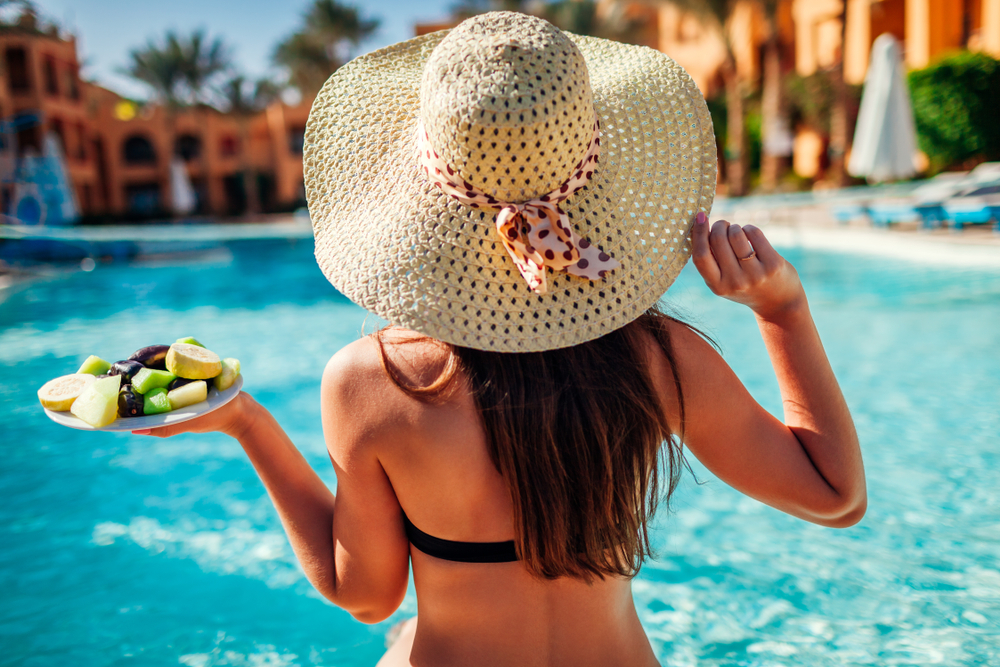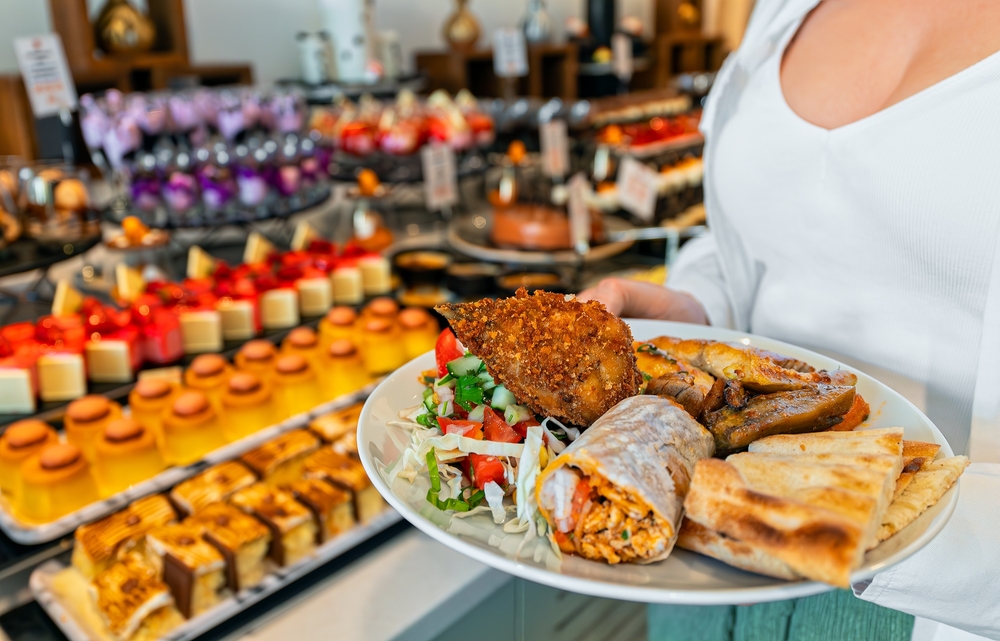Over Half of Brits Choose All-Inclusive Holidays Expecting to Overindulge, Study Finds
Radical Storage surveyed 1,050 British holidaygoers about their experiences on all-inclusive holidays (compared to other holiday types) to find out what makes them so popular.
Boozy Brits Abroad
In our recent tourist-syndrome survey, we found that 53.1% of respondents admitted to drinking more alcohol on holiday. Binge-drinking on holiday is a common bad habit, and in response, several popular Spanish resorts have introduced a three-drink-per-night limit for tourists.
Often, though, all-inclusive resorts offer customers “unlimited” food and drinks, including cocktails. This doesn’t necessarily guarantee you an infinite supply of margaritas, as there may be limits, like times of day you can and can’t drink.
Still, this temptation of unlimited booze is the winning factor for many. When asked whether they thought all-inclusive holidays were only worth the money if they planned on drinking lots of alcohol, 58.3% of respondents said yes.
Who is going on all-inclusive holidays?
Overall, the majority (80.6%) of respondents said that they had been on an all-inclusive holiday (where all meals, drinks, and activities were included in the price). However, some demographics were far more likely than others to have been on this kind of trip.

Digging into the demographics, despite having had less life experience, Gen-Z (aged 18-28) were still the most likely to have taken an all-inclusive trip (91.3%). This is 28.7% greater than the rate of Boomers (aged between 61-79), who were the least likely to have been on this type of getaway (62.6%).
One argument why package and all-inclusive holidays have found appeal with younger audiences is the influence of shows like Love Island. The popular dating-reality show, where competitors are filmed living in a luxury, catered villa for six to eight weeks, has partnered with Jet2 holidays since 2022 (a provider of package holidays). And interest continues to grow. Since April 2024, Google searches for “Jet2Villas holiday” have increased by 414%.
Fly and flop? What really happens on an all-inclusive holiday
As explored in our study on the world’s most stressful destinations, navigating your way around a new environment can be anxiety-inducing. All-inclusive holidays are convenient: the stresses of finding and booking your own accommodation and the logistics of getting there are taken off your plate.
We asked respondents to rate out of 10 (with 10 being the most likely) how likely they were to do various things on holiday. We also asked respondents to estimate how many days per week they would engage in different activities.
| Likelihood of activities/outcomes on an all-inclusive getaway compared to other holiday types | |||
| Activity/outcome | Likelihood on an all-inclusive holiday out of 10 | Likelihood on a non-all-inclusive holiday out of 10 | Difference |
| Leave feeling relaxed and recharged | 7.1 | 6.9 | -0.2 |
| Eat more than you would normally at home | 6.4 | 5.7 | -0.7 |
| Eat local foods/dishes | 6.1 | 6.4 | +0.2 |
| Drink more alcohol than you would normally at home | 6.0 | 5.4 | -0.7 |
| ‘Dress up’ for dinner | 5.8 | 5.2 | -0.6 |
| Go on a day trip beyond the local area/city | 5.6 | 5.9 | +0.4 |
| Learn and use words of the local language | 4.5 | 4.9 | +0.4 |
| Make a friend(s) | 4.2 | 3.9 | -0.3 |
| Have a romantic interest | 2.8 | 2.6 | -0.2 |
Besides asking how likely (out of 10) a respondent was to participate in a certain activity, the survey also sought to quantify the number of times per week that holiday goers engaged in the different activities (e.g., on 2.4 days of a week-long holiday, someone on an all-inclusive holiday ate at a local restaurant, compared to other types of holiday where it was 4.4).
Around 16.1% of all-inclusive holiday goers said they only left their resort once or not at all during a typical seven-week stay, which is twice as high as those on other types of holiday. Overall, the average number of days per week someone on an all-inclusive holiday leaves their resort/accommodation site is 3.4 days per week.
| Time spent going outside the accommodation | ||
| Time spent | On an all-inclusive holiday* | On a non-all-inclusive holiday** |
| 0 days/not at all | 3.2% | 2.0% |
| 1 day/once | 12.9% | 5.5% |
| 2 – 3 days/a few times | 47.6% | 22.1% |
| 4 – 6 days/very often | 22.3% | 23.3% |
| 7+ days/every day of my trip | 14.0% | 47.1% |
| Average amount in days | 3.4 | 5.1 |
Further data on time spent on exercise or exploring nature can be found on the main source page: https://radicalstorage.com/travel/all-inclusive-study/





